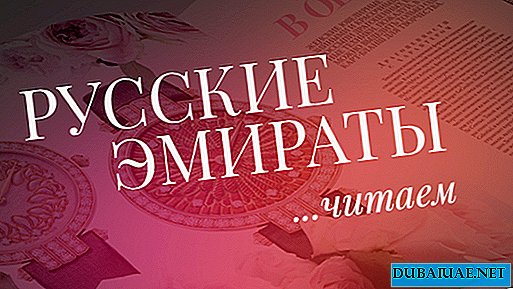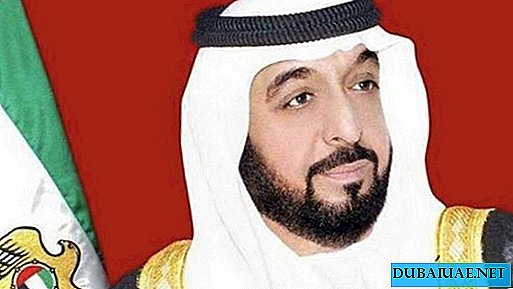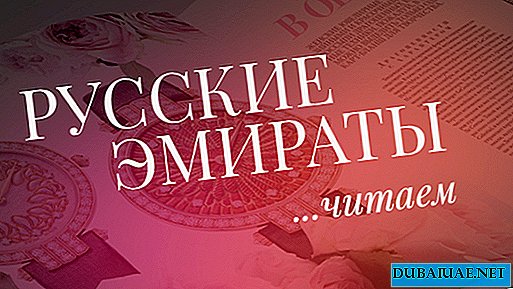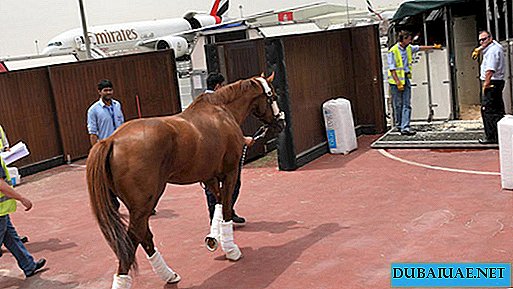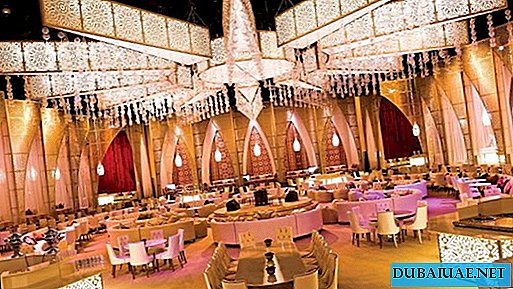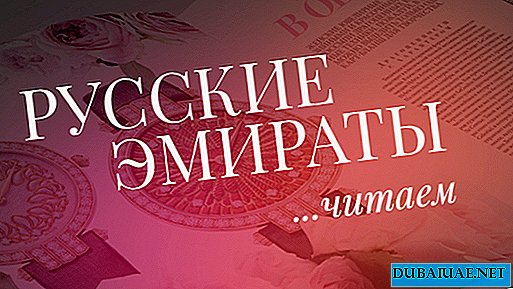Father Alexander was born in the northern capital of Russia, where he graduated from a theological seminary and academy. After graduation, he served for four years as a priest in the Czech Republic, in the Russian Church of the Holy Apostles Peter and Paul, in the city of Karlovy Vary. He worked in the Department for External Church Relations of the Moscow Patriarchate. In 1995, he was appointed rector of St. Nicholas Cathedral in Tehran, and since 1999 he began to pastorally nourish the Russian-speaking Orthodox community in the UAE.

"RE": Many of our compatriots who have left in search of a better life far from their native land are thinking about how to keep the Orthodox faith clean and pass it on to children. Please tell us why the Orthodox church in Dubai appears much later than the churches of other faiths, and how donations for its construction can be made.
Father Alexander: The Russian Orthodox Church in the Emirates will be built without fail, but not as fast as we would like. Last year, during a visit to the UAE by a delegation of the Russian Orthodox Church, headed by Metropolitan of Smolensk and Kaliningrad, Cyril Sheikh Sharjah promised to allocate land for the construction of the Russian church. Unfortunately, this process has dragged on and is still in the process of being resolved.
Currently, the Russian-speaking Orthodox community in the Emirates holds regular services in rented premises: in Dubai - in the Anglican Church of the Holy Trinity (on Ud Metha Street opposite the Iranian Club), in Sharjah - in the Armenian church in the Yarmouk region, and in Abu Dhabi, in Greek Orthodox Church.
Now there is a legalization of the parish of the Russian Orthodox Church in the Emirates. The Orthodox priest has already received the right to work and a resident visa. In the near future, the parish will receive its own bank account, where it will be possible to transfer donations both for the construction of the future church, and for the current expenses of the Orthodox community. In the meantime, you can make your contribution after the service in the temple.
"RE": Is there a Sunday school or library in the Emirates where you can get acquainted with the Holy Scriptures and the creations of the Church Fathers?
Father Alexander: Our parish does not yet have a Sunday school and library, since there is also no building for its temple. But you can get scripture and other religious literature even now - in a rented church before or after the service.
"RE": Although the temple has not yet been erected, now in the Emirates there are people who want to join the sacraments of weddings and Holy Baptism. What are the conditions in the Emirates for performing these sacraments and do they have any peculiarities here compared to Russia?
Father Alexander: In the days of worship, you can approach the Sacraments of Confession and Communion. The Sacraments of Baptism and Wedding are performed separately, which are no different from the sacraments taking place in the Homeland, except for the absence of excessive solemnity.
"RE": What Christmas services will be held in Dubai and Sharjah?
Father Alexander: On Christmas Day in the Emirates, Orthodox services will take place on January 6th: in Sharjah in the Armenian church at 19.00, in Dubai in the Anglican Church of the Holy Trinity at 23.00, on January 7th in Abu Dhabi in the Greek Orthodox Church at 21.00. Details can be found by calling (050) 787 0612 and (050) 589 1263.
"RE": It is known that the Christmas holiday precedes the mentioned holiday. However, not everyone knows for certain when it begins and what features it has ...
Father Alexander: Orthodox Christians in our church precede the holiday with a forty-day Christmas Lent, which begins on November 28. This post is not very strict; fish is allowed to be eaten on meals on all days except Wednesday and Friday. The last day of fasting, January 6, is called Christmas Eve. On this day, the post is very strict: only tasting sochi is allowed - dishes of boiled wheat or rice with honey and dried fruits.
 "RE": It’s no secret that believers are often confused by the fun New Year’s celebration that falls on the last weeks of Christmas fasting. Even within the same family, opinions may differ on how to celebrate this event. Some ask: "Is it acceptable to drink wine and eat fast food on New Year's Eve?" Others worry: "After all, we will offend our relatives by refusing to celebrate with them." What do you recommend to doubters?
"RE": It’s no secret that believers are often confused by the fun New Year’s celebration that falls on the last weeks of Christmas fasting. Even within the same family, opinions may differ on how to celebrate this event. Some ask: "Is it acceptable to drink wine and eat fast food on New Year's Eve?" Others worry: "After all, we will offend our relatives by refusing to celebrate with them." What do you recommend to doubters?
Father Alexander: Everyone strives for happiness. "Happy New Year, with new happiness," we traditionally greet each other in celebration of the New Year. On this day, it is important for us to realize the relationship of happiness and prosperity with obedience to God. Therefore, on the civil New Year's day, special prayer songs for the New Year are served in Orthodox churches. One can also mark the coming of the new year of goodness of God by tasting a fish meal, but without excessive libation.
"RE": What about the invitation of Grandfather Morozaso the Snow Maiden and the presentation of gifts, holy carols and Epiphany fortune-telling? After all, many consider them pagan ... Father Alexander: I see nothing wrong with the presence of Santa Claus and the Snow Maiden on New Year's Eve, as well as in the presentation of New Year's gifts. Christmas carol singing is our beautiful folk tradition, but Epiphany fortune-telling, as well as witchcraft and magic, is a terrible sin that carries danger to both the fortuneteller and his family.
"RE": Father Alexander, what would you wish our readers in connection with the upcoming holidays?
Father Alexander: I heartily congratulate the readers of Russian Emirates magazine on the feast of the Nativity of Christ, full of deep religious meaning. The first pages of the Bible tell us that God put freedom and moral feeling into the nature of the person he created, that is, the ability to distinguish Good from Evil, and gave the basic law of life: the commandment of obedience. But the human race, both in the person of the first people and throughout history, violated and violates this fundamental commandment of obedience to God, seeking without Him to transform the world and himself. The denial of God and the established order of life by God is called sin, and the wages of sin is death (Genesis 2.17; Rom. 5.12).
But God remained true to his plan for man. Without changing the nature of man, without restricting his freedom, He still saves man from sin and death. The salvation of the world is accomplished by Jesus Christ, the Son of God and the Son of Man, who was born in a wretched cave of Bethlehem. He accomplishes the salvation of mankind because by his life He restores the commandment of obedience to God (Phil. 2.8), his personality is the beauty of God's plan for man, becoming the new Adam - and, finally, being sinless, sacrifices himself to divine justice for the sins of the whole world (Gal. 3.13; 4.5; Eph. 1.7). Jesus Christ atones for our sins and, by the power of his grace, renews and restores all creation (2 Cor. 5.17; Gal. 6.15).
And answering the question why the Son of God became the Son of Man, Saint Athanasius the Great wrote: "For this, the Son of God became the Son of Man, so that the sons of man become sons of God!"
In these New Year and Christmas days, to all of us, by the will of God in the Emirates, who are gaining in the New Year, from the Bethlehem Divine Infant, I wish you mercy, health and prosperity!


